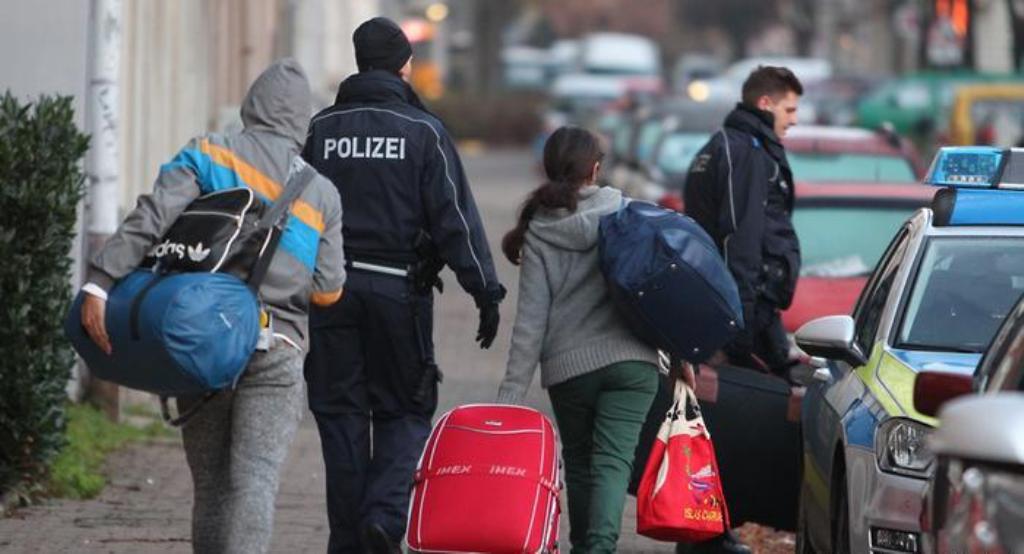
“They told us that we are not a country at war, therefore we could not be granted asylum. So, they deported us. It’s pointless. They reject everyone. We stayed a whole month in the camp and then they deported us”. This was the answer that, the girl with initials E.P, who had sought asylum in Germany last year, was giving to her hairdresser. To make the conversation more intense, as it often happens in such cases, by bringing fresh testimonies, another woman, who was waiting for her hair to dry said: “My brother in law was also rejected. They deported him within a few weeks.”
Each of us may have heard such accounts and they all have one common denominator: the fact that asylum seeking in European Union member countries is something that many Albanians are still interested in.
This phenomenon is also confirmed by the latest report of the European Asylum Support Office, where Albania ranks among the ten countries with the highest asylum applications in the EU countries. Although the report states that requests are not as high as in 2015, asylum seeking still seems to be a cause for concern for EU authorities.
According to the report in question, last year, in 2016, the number of Albanian people who applied for asylum in the European Member countries was 32.855, accounting for 3% of the total number of applications. The country ranks among other countries which are known to be involved armed conflicts, as it is the case with Syria (26% of the total asylum requests), Afghanistan (15%), Iraq (10%), etc. “In spite of the reduction in their numbers, Albanian asylum seekers are still among the 10 countries with the highest number of asylum requests in the EU”, European experts say, confirming, however, the fact that a drop has been seen in the number of asylum seekers from Kosovo, Syria and Albania last year. We should recall that in 2015, the number of asylum seekers from Albania was 68.950; in 2014, they were 17.310, 2013 they were 11.400, while in 2012 they were only 7.760 asylum seekers. These figures indicate a growing trend of asylum seekers, culminating in 2015 with the new Albanian “exodus”.
HISTORY
Yzeir from Durres, deported after two years with two children in German schools,
Yzeir from Durres is only one of the numerous Albanians who have tried to seek asylum in Germany, but haven’t made it. Married, with two children and being a lorry driver by profession, he stayed two years in Bremen and returned after being rejected: “Your country is not at war.
You have a profession and you can work in your country”. What’s special about his story is that he enrolled both children in a German school, where they achieved excellent results. His daughter even won the math olympiad, while his son, who studied violin, also showed great skills. In such circumstances, he thought that it would have been easier for him to be granted asylum, because his children were integrated in the country. But even this was not enough and authorities deported them. They even counted the money that they had on them to see if they had worked in the black market during the time they had been there.
GERMANY
Germany continues to receive the highest number of asylum seekers coming from Albania. The latest figures issued by the EU show that over half of them prefer this country over any other European country as a destination for asylum with 52% of the total number of requests. Meanwhile, Germany seems to be a favorite destination for other groups of asylum seekers too: 80% of Syrian asylum seekers, 67% of Afghan asylum seekers, 74% of Iraqi asylum seekers, etc. Even 76% of Serb asylum seekers prefer this country over any other. Meanwhile, Germany seems to account for 58% of the total number of asylum requests made in the EU member countries.
Albania has the lowest number of people who are granted asylum
Although the number of asylum requests from Albania is high, the number of those who are granted asylum by European authorities is small. This is confirmed by European authorities in the report on asylum. “The applicants with the smallest number of positive decisions for asylum last year were nationals from the Western Balkan countries: Former Yugoslav Republic of Macedonia with 1%, Serbia with 2% and Albania with 3%”, the report says. The figures provided in the report show that Albanians do not have the same chances as countries in conflict or war, to be granted asylum in European Union member countries. “As it was the case in 2015, applicants from Syria, Eritrea and those without nationality, had the highest number of positive decisions for asylum, 98%, 91% and 88% respectively”, the report in question states. This is confirmed by the figure concerning Syrians, who come from a country, who has been in war in the past five years. Almost 100% of asylum requests coming from the nationals of this country are granted.
